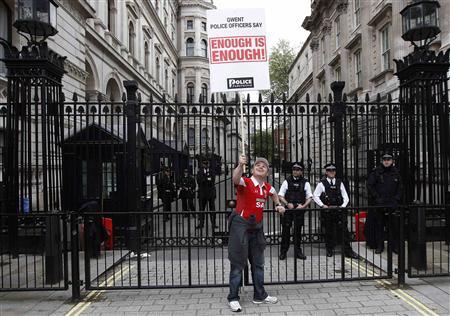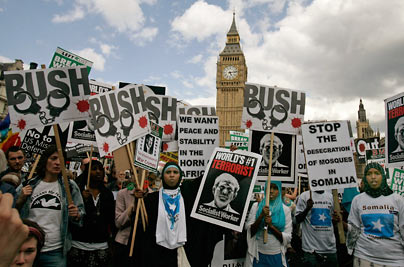11th February 2015 Havana, Cuba
Saying what you think where you like
I was surprised to read recently that some Cuban academics are under the impression that British people can’t protest in front of No 10 Downing Street where the British Prime Minister lives. They can and they do. Almost every day people gather opposite Downing Street to air their opinions about one issue or another. They also regularly gather and protest outside the Houses of Parliament – where British MPs of different political parties meet to debate the issues of the day – and outside several Government buildings. These are protests permitted under British law, held close to the centre of British political power and in full view of where the Prime Minister, Cabinet Ministers, politicians and civil servants work.
British people can protest about government policy in other ways too. They can write to their member of parliament (MP) and expect to get a reply. They can meet their MP in weekly constituency surgeries and raise their concerns. They can write to newspapers, join groups or organisations opposed to government policy, organise marches or demonstrations, organise petitions or use social media. Critics of the government are regularly interviewed on TV or radio programmes; newspaper editorials criticising government policy are commonplace.
This right – the right to freedom of expression – is enshrined in the European Convention on Human Rights and guaranteed under the Human Rights Act. They provide that ‘Everyone has the right to freedom of expression. This right shall include freedom to hold opinions and to receive and impart information and ideas without inference by public authority and regardless of frontiers.’ People can express their views aloud or through published articles, books or leaflets, television or radio broadcasting, works of art or in social media. It is possible to place some limits on this right, but only if those limits are prescribed by law, are necessary and proportionate, and pursue a legitimate aim. There is also a healthy public debate about where the limits of the right to the freedom of expression lie, for example around issues of national security, territorial integrity, and public safety.
So, if any Cuban academics – or journalists for that matter – are ever in London when I am, I would be very happy to show them a public demonstration in Parliament Square or outside Downing Street. I’m sure they’d find it illuminating. And of course, they should bring along a megaphone, in case they want to join in.


I invite you to visit the following page and check out a group of famous Cuban songs with new English lyrics. This could be of interest for the strong choir movement in the UK and at the same time it could put more people from the UK in contact with Cuban popular music:
http://creacionespersonalesjfc.blogspot.com/2014/09/cancionero-cubano-cuban-songbook.html
Enjoy and all the best!
You left out Speakers Corner, quite amazing !